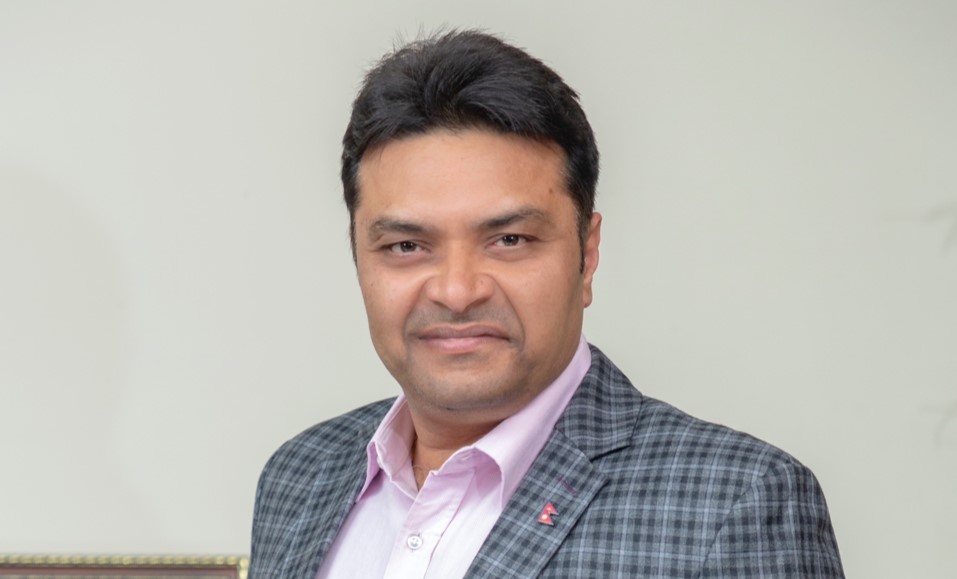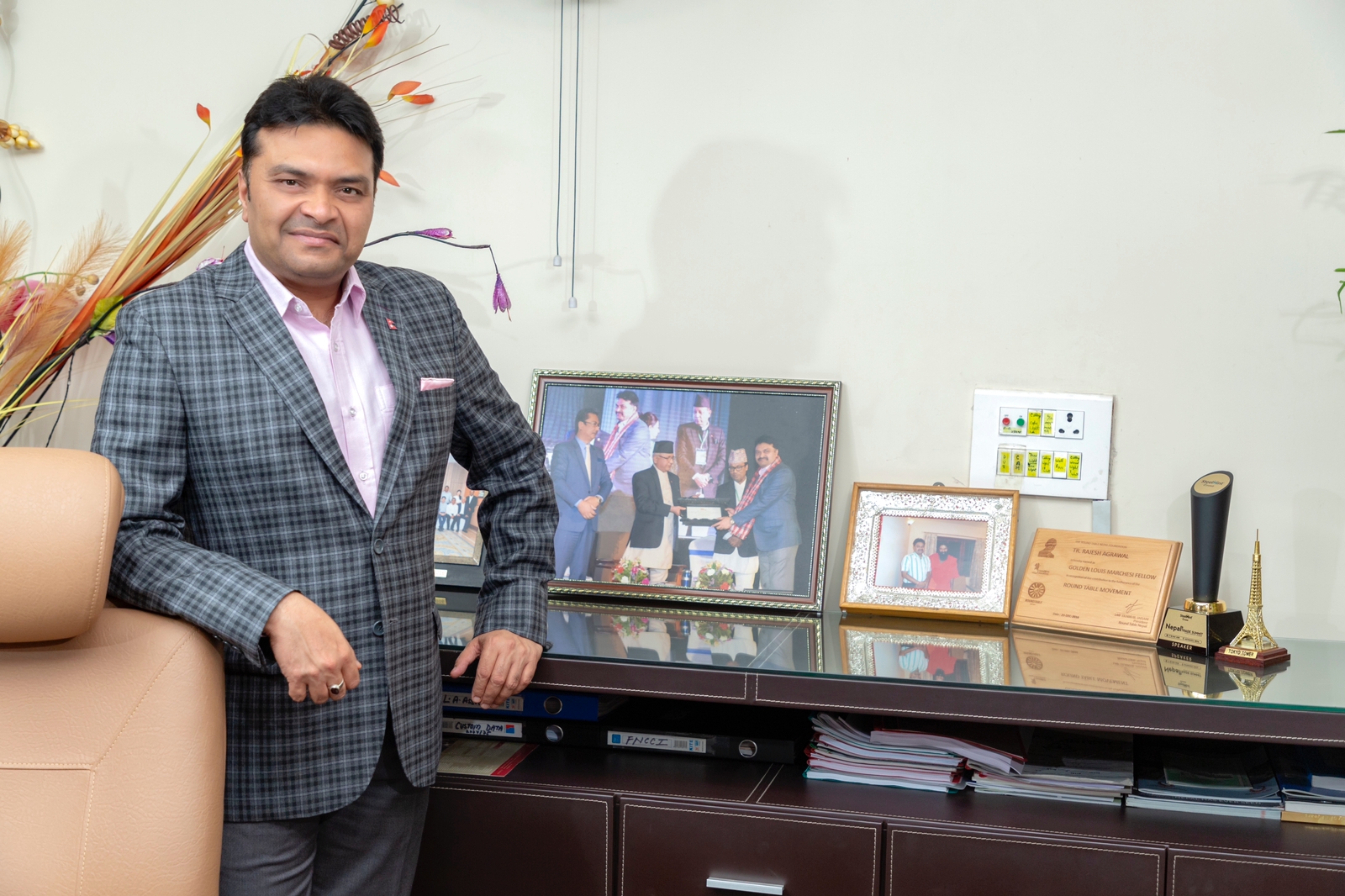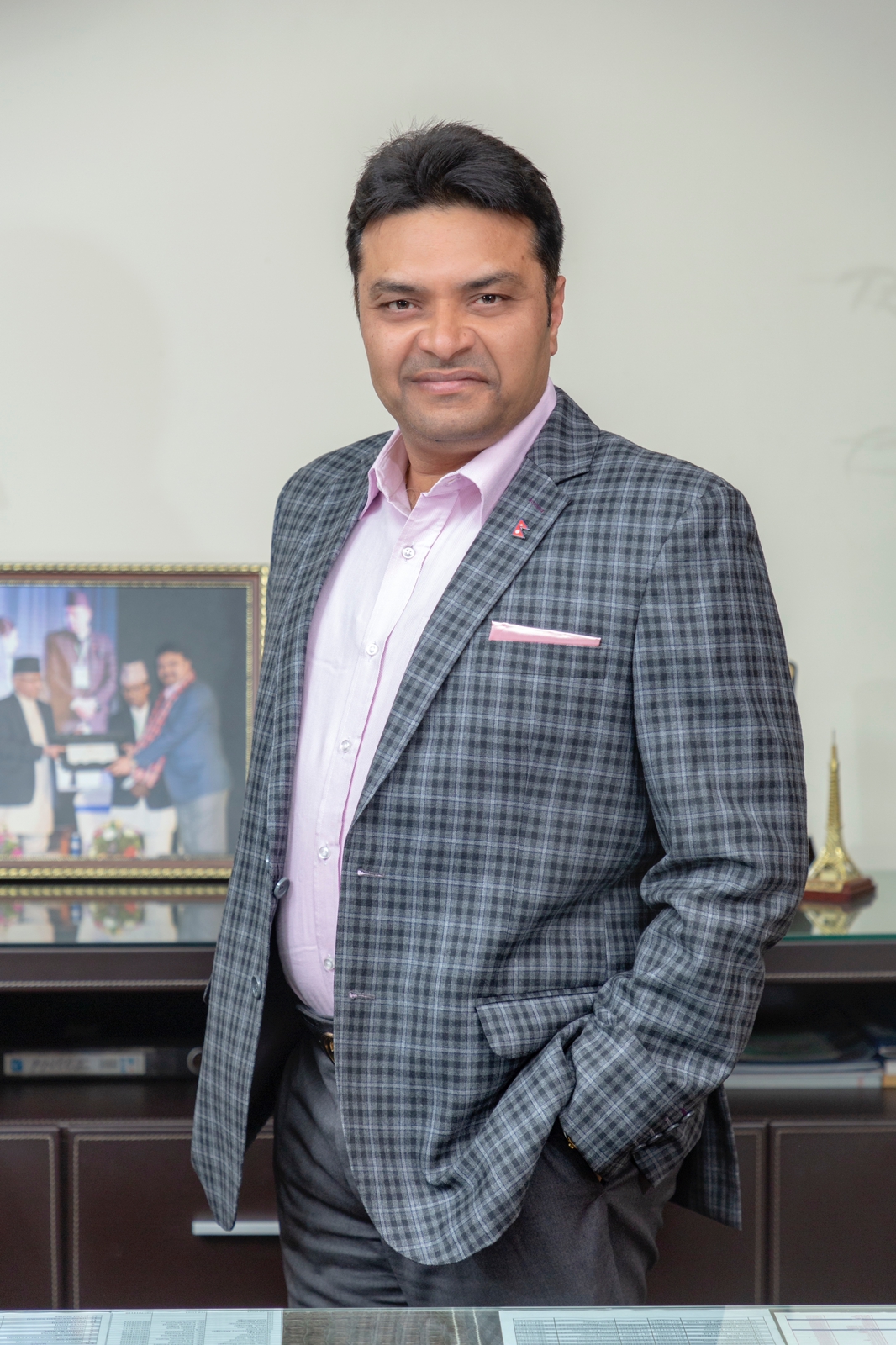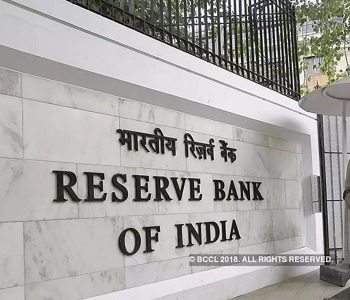From the periphery to the central limelight
A humble businessman’s saga who incepted his journey at a local level and went the extra mile to earn a name and fame for himself across the nation
KATHMANDU: Rajesh Agrawal, the Managing Director of Arghakhanchi Cement Limited, who now brags nationwide fame, had a sober beginning in Butwal-Bhairawaha, the industrial hub of Nepal. He is also a testimony that an efficient businessman, rigorously engaged in the manufacturing sector, should not necessarily be based in Kathmandu Valley.
Manufacturing is thought to be riskier than the trading and service industries. Agrawal, however, is well-versed in this risky enterprise and has only invested in manufacturing. Big-scale industries like Arghakhanchi Cement, Shree Steels, Asian Concreto, and Milano Shoes, to name a few, are thriving under his funding and tactful management skills.
He is also successfully engaged in the agricultural sector with the production of Tej mustard oil, Namaste soyabean oil, sunflower oil, and palm oil. He does not stop here. He also has mineral water bottles and industrial packaging materials under his belt. “God has blessed me with the ability to create jobs,” says Agrawal, who employs 1,800 people directly and another 2,500 indirectly.
As opposed to a large number of Nepali businessmen who prioritized the trading and service sectors, Agrawal is hell-bent on the industrial sector alone. “One should be where he is good at. And he should expand it where he has succeeded,” Agrawal says of his success formula.
He seems to be worried about the country’s ballooning trade deficit with trading nations and opines that in a bid to overcome the loss, the country needs to substitute imports. “This is the reason why I have focused on manufacturing,” he adds, “Given the context of the trade deficit, I also see a bright future for the industrial sector in Nepal.” He believes that nothing could be a bigger service to the nation than substituting imports by enhancing local production. “I am entirely dedicated on this front,” he states.
Agrawal frequently receives queries and concerns from his friends and well-wishers about his concentration on the industrial sector but not on others, like the service and trading sectors. He also comes across people who try to discourage him, stating that investing only in industries might be a risky game.
“I also agree that there is a huge scope in service-related businesses like hotels, hospitals, and telecom,” he says, “But these businesses are beyond my experience and expertise, and hence I deem them insecure.”
Nevertheless, Agrawal has initiated diversification in the industrial sector itself. With the arrival of new generations, businesses in Nepal have shifted from family-owned firms to professional corporate houses, while some have changed their business models as well as areas of investment. Many industry-focused businesses have turned toward the trading and service sectors for greater profit.
While the third generation of young businessmen has also begun exploring international markets, mostly through the IT sector. In a bid to expand business overseas, some have also changed the citizenship of their children.
But Agrawal does not follow the suit. And he has already brought his son, Somesh, into his businesses.
“My grandfather ran businesses while my father owned rice and flour mills. I have invested in national-scale industries,” shares Agrawal, “And my son is now leading Shree Steels.”

At a time when the market has shrunk and the national economy is suffering hard, the businesses established by Agrawal has been faring well and recorded as much as Rs 20 billion worth sales. With the establishment of Arghakhanchi Cement and a clinker plant, he became a national-level businessman and is at the center of all of his businesses. “I do directly monitor all of my businesses and reach all of my firms in person,” he says.
Of late, he has been working to change the business model of his companies. He remarks, “First there was a time of single-owner businesses, then partnership models thrived,” he informs adding, “Now is the time of public limited companies, whose basis is sharing the profits among a larger number of people.”
According to him, the employees of a public limited company become more responsible, and the model benefits more people.
Future plans
Agrawal has maintained a wait-and-watch mode for the moment. Yet, once the situation normalizes, he is mulling investing in mega-projects.
“I don’t think I’ll open new businesses right now because we’re struggling to run the existing ones,” he says of the difficulties, “We expect 18 to 20 percent annual business growth in countries like Nepal.” However, we have been hit hard by a number of problems like the COVID pandemic, liquidity crunch, higher interest rates, and lack of demand in the market, which has further aggravated the situation in the construction sector.”
Agrawal had planned to establish a new cement industry in eastern Nepal while also searching for iron mines, but the economic crisis forced him to hold off for the moment. “We used to import steel in the past. Later, we began manufacturing steel by importing blades. Currently, we are importing sponge iron and scrap iron to produce steel,” he goes on, “We should find an iron quarry in Nepal in the future, which will help reduce our dependence largely.”
According to him, a true businessman always seeks out schemes to make the country independent. “By using electricity to cook food, we can eliminate LP gas imports,” he explains.
He also feels that the business community should first think about replacing imports and increasing exports. “We have just begun exporting Shree Steels and Arghakhanchi Cement. “This is just the beginning,” he continues, “Once we succeed in convincing Indian customers and establishing our brand, we will do massive exports.” He also expressed his gratitude to the government for schemes like the export incentive to help boost exports.
The recent economic crisis has dampened Agrawal’s spirit to some extent. “I had many dreams, but the overall economy is going through a crisis,” he explains the present situation, “The contribution of the manufacturing sector has gone down; while exporting goods worth Rs 1, we are forced to export the same goods worth Rs 11; the banks have set similar interest rates for the trading, service, and industrial sectors.”
Recently, businessmen appear to have expressed an interest in politics, with the number of lawmakers with business backgrounds in parliament increasing.
Agrawal, however, does not have any hunger for political power. “I don’t think one should enter politics just to serve the nation,” he says, “But I hope those businessmen who are now in government will come up with policies to accelerate economic development, encourage investors, and create a proper business environment.”















Facebook Comment